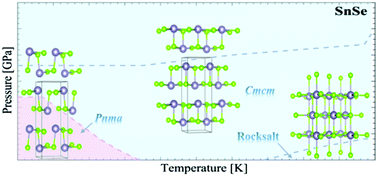Speaker
Description
The stability of a material is an important consideration, particularly in systems with multiple competing phases, and is an area where modelling can provide valuable input to experiments.
However, a typical athermal DFT calculation on an equilibrium structure only yields the lattice energy, which provides limited scope for investigating stability. The theory of lattice dynamics, which accounts for the natural thermal motion (phonons) in periodic systems, provides an efficient means to address this issue by incorporating temperature effects into calculations.
Phonon frequency calculations within the harmonic approximation (HA) can be used to compute the phonon contribution to the temperature-dependent Helmholtz free energy, which can be used to compare the relative stability of materials as a function of temperature. The quasi-harmonic approximation (QHA) further takes into account the effect of volume changes to compute the Gibbs free energy, which is in most cases a more experimentally-relevant quantity, and can also predict the effect of applied pressure.
Finally, lattice-dynamics calculations also provide a means to assess dynamical stability based on the presence or absence of imaginary harmonic frequencies in the phonon spectrum. In some cases, imaginary modes may identify an unstable structure or a failed geometry optimisation, whereas in others they can provide insight into the structural relationship between phases and the mechanism of the transition between them.
In this talk, we will illustrate the applications of these models to a number of topical systems, including the tin chalcogenides SnxSy/SnxSey and the archetypal hybrid halide perovskite (CH3NH3)PbI3.

